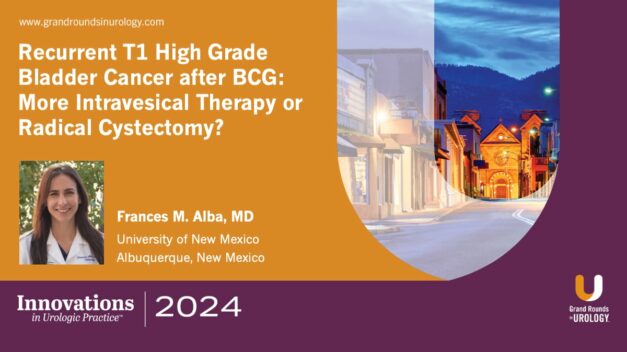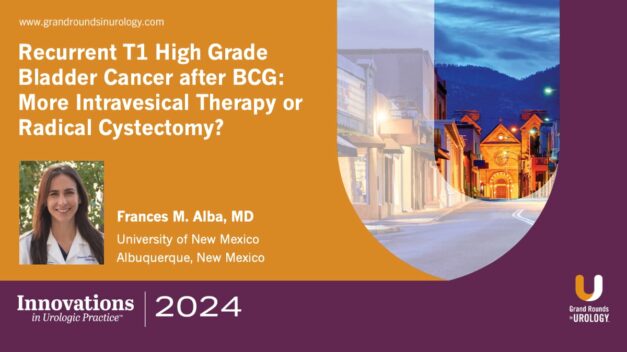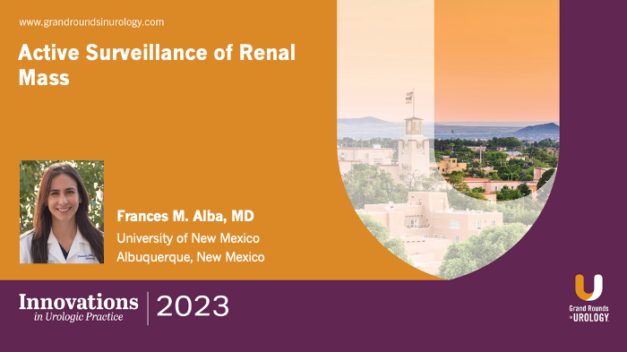Recurrent T1HG Bladder cancer after BCG: More Intravesical Therapy or Radical Cystectomy
Frances M. Alba, MD, Associate Professor of Urology at the University of New Mexico, discusses the management of T1 high-grade bladder cancer, focusing on cases that recur following BCG therapy. In this 14-minute talk, Dr. Alba notes that continued BCG is seldom effective in these patients. Alba highlights the AUA guidelines, recommending cystectomy as the best chance to prevent disease progression, but shares additional treatment paths when not an option.
Read More



